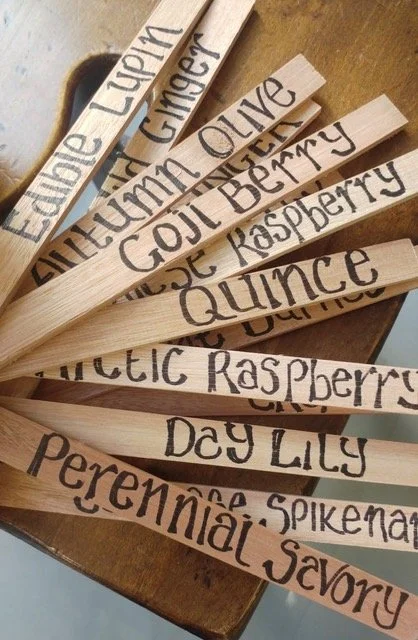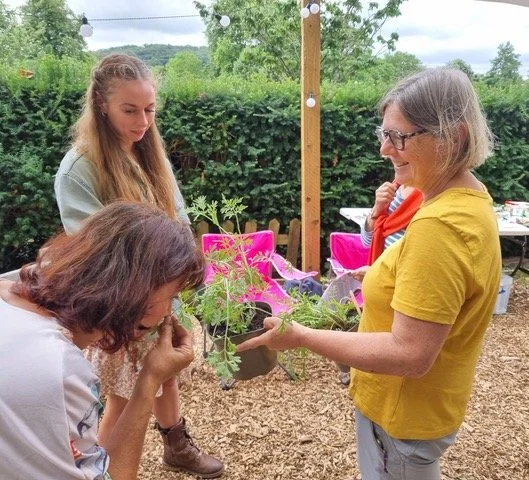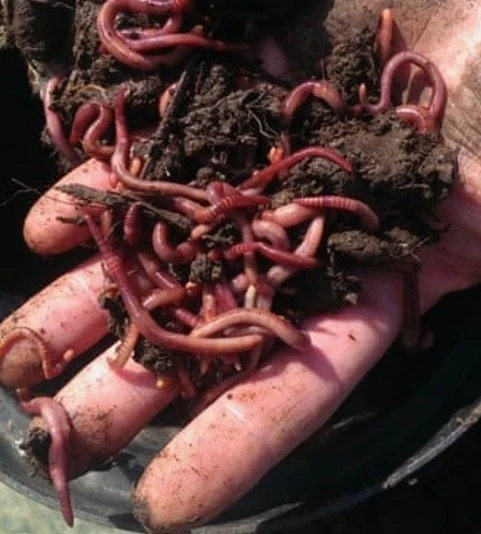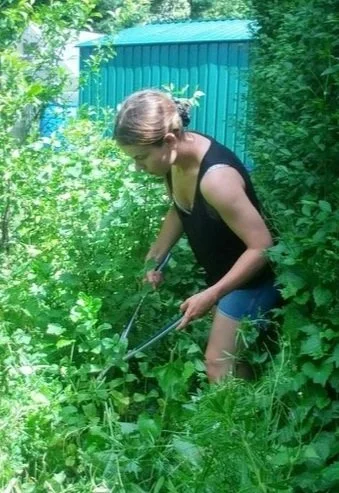Community garden
Alice Park Community Garden
A community garden is any piece of land gardened by a group of people for the benefit of the group and the wider community. I feel privileged to have this amazing place on my doorstep.
Carol Stone of Alice Park Community Garden
Impact of Covid
Because of Covid, we lost our way a bit to be honest. We were a garden, but people wanted something different. They wanted somewhere to find sanctuary and get involved with other people and make connections. We rose to the challenge and changed our way of thinking about ourselves, but we needed a little manifesto to reframe what we do. It never was just a gardening project. But the manifesto is quite important to us.
Covid had a big effect on us, because there was a period where people weren’t even allowed to come to the garden. So that idea of a group of volunteers looking after what we had, fell by the wayside. But it really made us rethink. What are we? What services are we providing to the community? And why are we doing it? As people trickled back, the people who came were looking for connection, for some sort of social contact, some way of expressing their care for other people and care for the environment as well.
An APCG volunteer
Covid-19 was a period of reflection for everyone wasn’t it? We asked ourselves what is important in life? Everything was quiet and peaceful, and we heard the birds singing and could almost hear the flowers growing. It really touched a nerve for people. Many people decided the important things are family, community connections and a healthy environment.
Re-design
We’re redesigning the garden. It will have a slightly different layout because people want it to feel like a journey. A lot of people came up with the view that they’ve been on a personal journey through Covid, for whatever reason. They might have lost a loved one, or had Covid, or had family or friends that had suffered. So, they want a garden that is more meandering and sensory. They want a little space they can go to and tend or enjoy but they also want to feel part of something in the community.
Over time, we will change the whole layout of the garden. Of course, it’s all energy intensive work. We’re doing it at a pace our small group can manage.
We’ve also changed the things we are growing.
Forest garden
We’ve got a forest garden, the bit which is all perennials. The idea is that nobody needs to look after it. If volunteers fall by the wayside for whatever reason, it would still be there. It would perpetuate by itself without much care and attention. It is meant to be a seasonal source of food – berries, fruits, roots, herbs – and things that people can look at and use. All without having to do any gardening at all. Some plants are medicinal as well. The idea is that people could forage there in their own time without being part of an organised group. It’s a free resource, that has come into its own since Covid. People feel they can go into the garden and explore and find something a bit more interesting than just going to the park.
Forest school
Holly Dabs runs a forest school in the garden once a week, which is for pre-schoolers and their parents. The idea is that children learn for themselves and pick up their own life skills. They come regularly. They don’t just do a one-off workshop and go. They learn each week what they want to do and how they want to interact with the space, and they teach their parents as well. It’s very structured, there are lots of activities for them: mud kitchen, painting, making models, singing, story time. It’s a bit like a nursery would be, but it’s all outdoors and there’s a higher sense of risk and adventure which develops skills and attributes the parents and tutor want the children to have. It works well. I don’t think children have enough freedom these days. At the forest school, they feel safe because of the enclosure in the garden but, within that space, they think it’s really exciting.
For us, it has also been nice to get a different age group into the garden.
Connections
We’re part of Transition Larkhall, our umbrella organisation (transitionlarkhall.wordpress.com). Transition is all about decarbonising the local area and encouraging people to use low carbon methods for their energy, transport, and everything else. I see us very much as the nature side of that work.
I’m the person in the background, who writes pieces for the Local Look magazine. I also write pieces for Facebook and for Instagram. I write things I think would be of interest to our target audience – which is everybody really.
Sometimes I write about biodiversity, promoting insect hotels and places for hedgehogs to live and things like that. Other times it’s about managing your soil to increase the populations of things that other things will live on. Or it can just be about general gardening – “we’ve got some lovely green manure”; or “we’ve got a parsnip, what a surprise.”
We’re part of the Social Farms and Gardens organisation (farmgarden.org.uk). We benefit from them in many ways. They have expertise in anything legal, offer news about sources of grant funding, and provide contact with other projects throughout the country that we can springboard from.
An APCG workshop
We fundraise for the workshops and to invest in the infrastructure - new bits of wood, new raised beds, basic things like that. We don’t spend a lot of money on anything. We show people that a garden doesn’t have to cost a lot.
Everything we do is a group effort. Decision making is a collaborative process with everyone who is regularly involved taking part. We’d love to do more, but there’s a limit to what we and the volunteers can take on. The committee is currently looking for new members. Every person who joins brings something new.
For all our activities, there’s a certain scale at which we can operate. We’re quite small. We must balance what we can offer with what this site and the environment can withstand. We are open to new ideas, but we are kind of ticking along doing what we do. You know what they say – sticking to the knitting.
What else they are knitting
Part of the package for our volunteers is that they get skills training and experience working alongside other gardeners.
If there is produce, they are the first people to take it home – though it can get to a point where we’ve not enough green beans for all our volunteers.
Every quarter we plan our series of workshops, aiming for a free event once a month. They cover a wide range of topics, such as compost-making, natural dyeing, making a festive wreath, what to grow in the winter. I think people are now more concerned about their own health and well-being. They’ve taken more responsibility for looking after themselves, mentally and physically. So, we decided to also teach about cough remedies and lip balms and things like that in the workshops. With these sorts of things, people reconnect with nature and can begin to take personal responsibility for their place in the world.
There’s quite a lot of a disadvantage in Larkhall and the rest of Bath. It’s just very well hidden. It’s important that we recognise that. We run our workshops for free because we don’t want to exclude anyone. We want people to feel that they can be part of something. So, there’s a social side to it as well as an environmental side. It is very important to us to reach out as far as we can.
Whoever comes through the gate is very welcome. It’s not a membership organisation. It’s open 24 hours a day.
November 2022
Contact APCG here:
Instagram @alicepark_communitygarden
Email apcgrowers@gmail.com
Twitter @AliceParkCG
Facebook @aliceparkcommunitygarden





